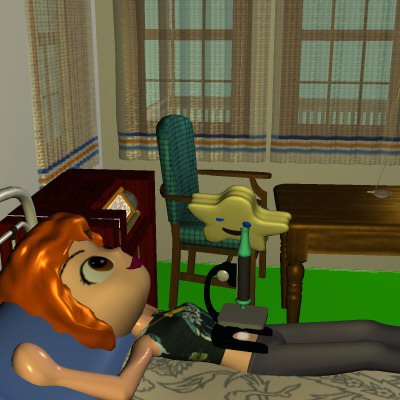Friday, July 08, 2011
Oh, quit blubbering.
All sorts of opinionators from Fox to NPR are bewailing the end of the space shuttle, loudly howling to their respective Gods: "How will kids be inspired to do science without the space program?"

News for ya, dummies: The same way kids were inspired to do science before the space program. Curiosity about the world, a compulsion to know more in a systematic way, the desire to help humanity.
I was never especially impressed by space, which is probably unusual for a total nerd growing up in the '50s.
Still not impressed now. We haven't learned anything general about Nature that we didn't already know, or couldn't have found by using earthbound telescopes and spectrometers. Space flight hasn't given us any new cures for disease, hasn't found any new elements or compounds, hasn't found any new species, hasn't made life easier or longer for anyone.
It has enabled lots of totally loony and totally non-scientific speculation by 'cosmologists', including the untestable Big Bang fantasy and the utterly schizophrenic Multi-universe rambling. And, of course, NASA has been an integral part of the genocidal Gaian cult for a long time. We'd be vastly better off without these wacked-out and murderous cults.
Perhaps space has speeded up development of micro-electronics, but the needs of defense and commercial products were already pushing solid-state electronics hard in the late '50s before Sputnik. Intel invented the IC in 1958.
I've already discussed the total destruction Sputnik caused in our math and science education. No way to quantify it, but I'll bet more kids were thrown off the science path by SMSG than were pulled onto it by Sputnik.
Well, where's the inspiration from now on? One word, young man. Bacteria. That's where all the action will be for a couple of decades at least. More broadly, biology and genetics. Curing diseases, understanding the grand plan of nature. Huge progress is already underway, with no end in sight.
Best part: you don't need a massive government program to discover something completely new. Any high-school lab will do. Consider the Belly Button Project, which began as a sort of inside joke, and has so far found 662 apparently NEW types of bacteria. Some of them belong to entirely new classifications.
Compare this to space on a cost-benefit basis. You can spend a trillion dollars, go a trillion miles, and discover nothing except anti-scientific and anti-human fantasies. Or you can spend a few thousand, go to your own navel, and discover 662 new species.

[Artistic note: Yes, I know microscopes don't work this way. For the purposes of this cartoon, they do!]

News for ya, dummies: The same way kids were inspired to do science before the space program. Curiosity about the world, a compulsion to know more in a systematic way, the desire to help humanity.
I was never especially impressed by space, which is probably unusual for a total nerd growing up in the '50s.
Still not impressed now. We haven't learned anything general about Nature that we didn't already know, or couldn't have found by using earthbound telescopes and spectrometers. Space flight hasn't given us any new cures for disease, hasn't found any new elements or compounds, hasn't found any new species, hasn't made life easier or longer for anyone.
It has enabled lots of totally loony and totally non-scientific speculation by 'cosmologists', including the untestable Big Bang fantasy and the utterly schizophrenic Multi-universe rambling. And, of course, NASA has been an integral part of the genocidal Gaian cult for a long time. We'd be vastly better off without these wacked-out and murderous cults.
Perhaps space has speeded up development of micro-electronics, but the needs of defense and commercial products were already pushing solid-state electronics hard in the late '50s before Sputnik. Intel invented the IC in 1958.
I've already discussed the total destruction Sputnik caused in our math and science education. No way to quantify it, but I'll bet more kids were thrown off the science path by SMSG than were pulled onto it by Sputnik.
Well, where's the inspiration from now on? One word, young man. Bacteria. That's where all the action will be for a couple of decades at least. More broadly, biology and genetics. Curing diseases, understanding the grand plan of nature. Huge progress is already underway, with no end in sight.
Best part: you don't need a massive government program to discover something completely new. Any high-school lab will do. Consider the Belly Button Project, which began as a sort of inside joke, and has so far found 662 apparently NEW types of bacteria. Some of them belong to entirely new classifications.
Compare this to space on a cost-benefit basis. You can spend a trillion dollars, go a trillion miles, and discover nothing except anti-scientific and anti-human fantasies. Or you can spend a few thousand, go to your own navel, and discover 662 new species.

[Artistic note: Yes, I know microscopes don't work this way. For the purposes of this cartoon, they do!]
